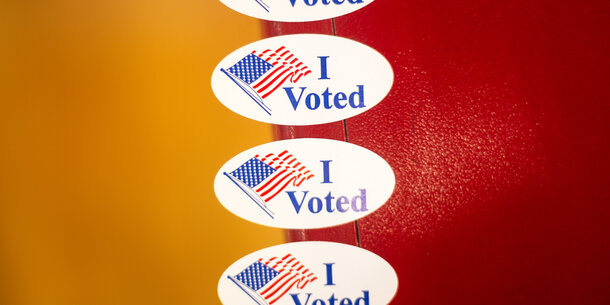Over the last decade, local governments — especially larger cities — have emerged as trailblazers for progressive policies, on everything from raising the minimum wage to protecting public health to fighting discrimination. Now, they could be poised to play a crucial role in helping to build an election process that’s safe, fair, and accessible amid the Covid-19 pandemic.
The Brennan Center has laid out the key solutions we need: expanded online voter registration, extended deadlines, and giving everyone both a vote-by-mail option and a safe in-person voting option. And the good news is that some states have taken the first steps to get there.
Virginia this month passed a voting overhaul that, among other steps, lets voters cast a mail ballot without an excuse. New Hampshire still requires an excuse for mail voting, but officials there said this month that concerns about Covid-19 would qualify. And North Carolina moved quickly to expand access to online registration through the DMV.
But some states have been slower to act. Wisconsin failed to extend the deadline for receiving mail ballots for its primary this month, disenfranchising thousands of voters who didn’t get their ballots in time. And Texas has so far rebuffed calls to extend vote by mail to everyone. A judge ruled this month that fear of catching Covid-19 is a good enough reason to use a mail ballot, but the state is expected to appeal. (President Trump, meanwhile, has falsely claimed that vote-by-mail opens the door to widespread fraud and has argued against making voting easier in response to the pandemic on the grounds that doing so would hurt Republicans, which is not the case.)
Inaction means that millions of would-be voters who can’t vote by mail could be forced to choose this fall between their health and their democratic rights. But in recent weeks, local governments have been taking important steps — sometimes in the face of opposition from state leaders.
Perhaps no state exemplifies this dynamic better than Pennsylvania. The GOP-controlled state legislature recently rejected a measure to send mail ballots to all registered voters. But the state’s two largest local governments are taking their own steps to get their voters mail ballots.
Philadelphia city commissioners voted this month to provide prepaid postage with all mail ballots for the state primary in June — helping Philly voters avoid being disenfranchised because they don’t want to risk their health with a trip to the post office. And Allegheny County, which includes Pittsburgh, will send mail ballot applications — also with prepaid postage — to all registered voters. (Though, in a sign that there is more work to do, Allegheny County is also proposing to reduce in-person voting locations by 85 percent). In both counties, the increased access to mail ballots may stay in place for the fall general election.
In Florida, where vote by mail is well established and widely used (including by President Trump), Miami-Dade, Broward, and Palm Beach Counties all plan to send mail ballot applications to all registered voters. Together, the three counties make up over a quarter of the state’s electorate.
And the city council in Milwaukee, the biggest city in the state that’s perhaps most likely to determine the presidential election, voted last week to do the same thing — with pre-paid postage included.
At least one local government effort to expand access to voting has brought pushback from the state. When Arizona’s largest county, Maricopa, last month announced plans to mail absentee ballots to all registered voters not already signed up to get one, the state claimed Maricopa lacked the authority to do the mailing, and a court blocked the move.
Of course, relying on local governments is an imperfect approach, since voters in other parts of the state don’t benefit. It can also lead to voters getting conflicting information and being confused about the rules that apply to them. That’s why state-level action is the best solution. But don’t be surprised if local efforts start to spread — thanks, improbably enough, to the power of partisanship.
So far, they’ve mostly come from large cities, whose voters and elected officials tend to skew Democratic. That could cause Republican-leaning counties in those same states to worry that their voters will be at a disadvantage in statewide races unless they adopt the same reforms, creating a race to the top. In swing states, where a few thousand voters either way could determine the presidential race, that dynamic figures to be especially strong.
There could even be a longer-term impact. If local governments see that they can play a major role in making voting easier, it could open up a promising new path for expanding voting access, even once the pandemic subsides — especially in states that have resisted modernizing their systems. For instance, local governments in states that don’t offer online voter registration may this year start to explore whether they can legally do so. And if they move forward with it, they’re unlikely to scrap it once the virus is beaten.
Still, let’s not get ahead of ourselves. For now, some pioneering city and county governments are recognizing that they can help with the urgent task of ensuring that the 2020 election is safe and fair. In this all-hands-on-deck environment, it’s a trend that deserves to catch on widely.
The views expressed are the author’s own and not necessarily those of the Brennan Center.






